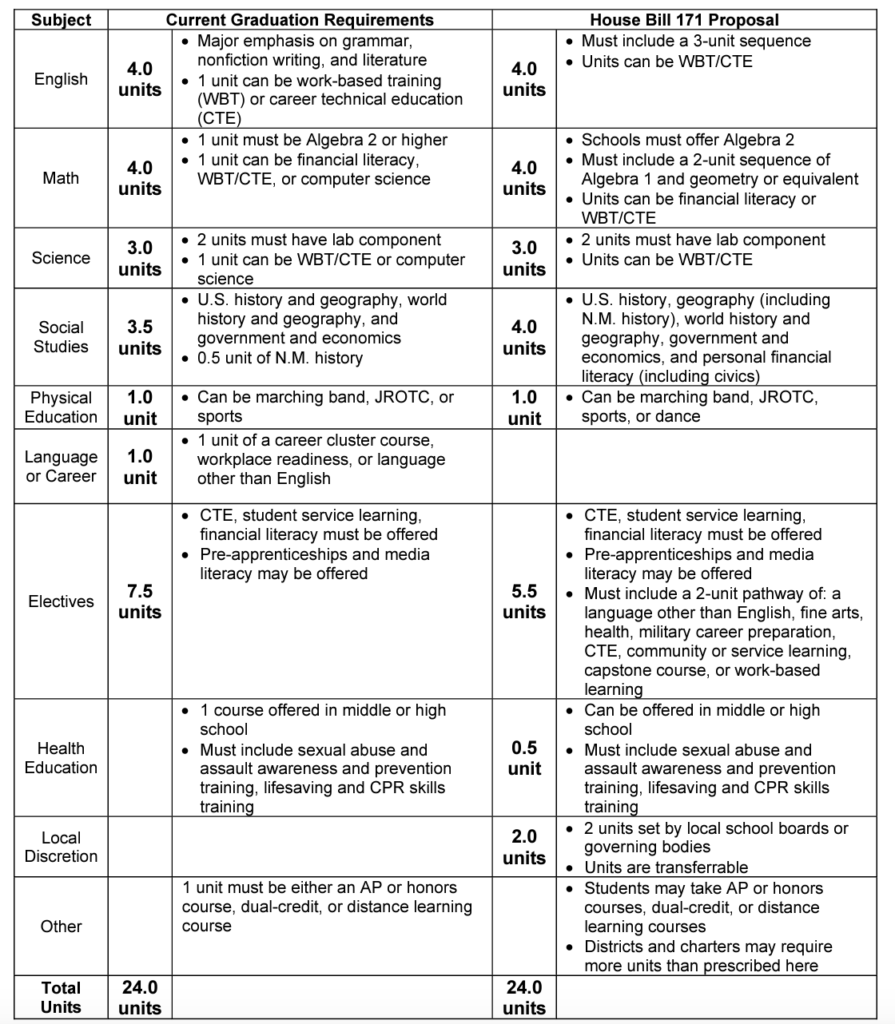By Brody Foster and Mariah Baca
Students entering high school next year won’t be required to take Algebra II after Gov. Michelle Lujan Grisham on Friday approved the first update to graduation requirements since 2009.
“High school should be about preparing students for the real world while providing more opportunities to pursue their unique interests and future careers,” Lujan Grisham said. “These changes will lead to more young New Mexicans staying engaged in school, graduating, and continuing that success in their adult lives.”
Lawmakers gave near-unanimous approval to the proposal (House Bill 171), which gives school districts more flexibility in offering courses that are relevant to their students.
Removing Algebra II from the list was part of a larger pattern of allowing career and technical education options alongside college prep classes.
Under the new law, high schools will still be required to offer advanced algebra, but students who don’t need the course for college admission can fulfill their math requirements with elective courses on financial literacy or career-technical education that prepares them for jobs after they graduate.

“House Bill 171 will help chart the path forward for students interested in the trades, giving them a head start to a successful career and helping New Mexico staff up these in-demand fields,” said Rep. Andrés Romero, D-Santa Fe, a social studies teacher and sponsor of the measure.
Gov. Lujan Grisham vetoed a similar proposal last year because it reduced the total credit hours required. This year lawmakers succeeded by keeping 24 credits required to graduate, while offering more flexibility on the path to graduation.
Other changes one foreign language credit and adding half a credit to social studies and health education. Two credits are being removed from electives and given to each school district to decide what classes should be required of their students.
“This is all an attempt to improve attendance and graduation rates, but also improve student happiness, so that they truly enjoy going to school,” Romero told News Port.
Not included in the update is one thing lawmakers debated: a mandated class in financial literacy.
“It’s very important that people get this education while they’re still in high school,” said Fred Nathan with the bipartisan policy group Think New Mexico.
Financial literacy classes teach students the basics of saving and budgeting money, as well as how credit and investing works. Nathan argued passionately to lawmakers that New Mexico should follow the 25 states that already require financial literacy.
While financial literacy is offered as an elective in New Mexico schools, Nathan said only about 11% of students take it.
“Kids that take financial literacy courses are more likely to have smaller balances on their credit cards and less likely not to take out high interest loans” Nathan said.
But senators were not persuaded and an amendment to require the class failed. “Financial literacy is already part of the current requirements and adding more of it isn’t necessary,” said cosponsor Mimi Stewart, a retired educator.
Other changes include a diverse range of elective classes and the empowerment of districts to decide on two units required for graduation, which allows educational pathways to be tailored to the needs and interests of different school districts throughout the state.
